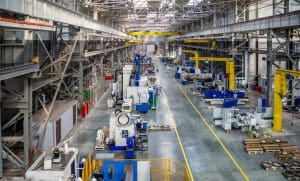Key Takeaways
- Tariffs are taxes imposed by one country on goods or services imported from another country.
- Tariffs are intended to make domestic goods and services more competitive by making imported products more expensive. But in reality, tariffs burden domestic businesses and consumers.
- Domestic goods that use foreign materials become more expensive to produce, resulting in lower profits, lower wages, and fewer jobs.
- Increased production costs result in higher prices for the consumer, who cannot see that the increased cost is from tariffs, not quality, supply, or other factors.
- These effects shrink the economy by reducing incentives to work and invest.
- Because tariffs get invisibly baked into the price of goods, they violate the principle of transparency and their unintended consequences get masked.
- Because tariffs disproportionately burden businesses and consumers who rely on the goods being tariffed, they also violate the principle of neutrality.
Transcript
One of the key principles of good tax policy is transparency.
It’s important to know what’s being taxed and what the rate is, so you can make meaningful choices and decisions.
But some taxes are virtually invisible — so much so that you may not even realize you’re paying them. Like tariffs.
Tariffs are taxes imposed by one country on goods or services imported from another country. They’re meant to make imported products more expensive, in order to make domestic goods and services more competitive.
But because tariffs get invisibly baked into the price of goods, it’s nearly impossible for you to look at two products and know whether the price difference is a result of quality, supply, or tariffs.
Even though tariffs are levied on foreign goods, it’s actually domestic businesses and consumers that bear most of the burden.
Domestic goods that rely on foreign materials, like lumber for example, become more expensive to produce.
In turn, these domestic businesses suffer, which can lead to fewer jobs and lower wages for their employees.
They might also pass their increased costs onto you, the consumer, by raising prices.
Collectively, tariffs make goods less affordable for domestic consumers, hurt domestic businesses, and shrink the economy.
Even though tariffs are invisible, their effects clearly are not. They might be sold as a tool to strengthen the economy, but tariffs are just taxes that make everyone worse off.




